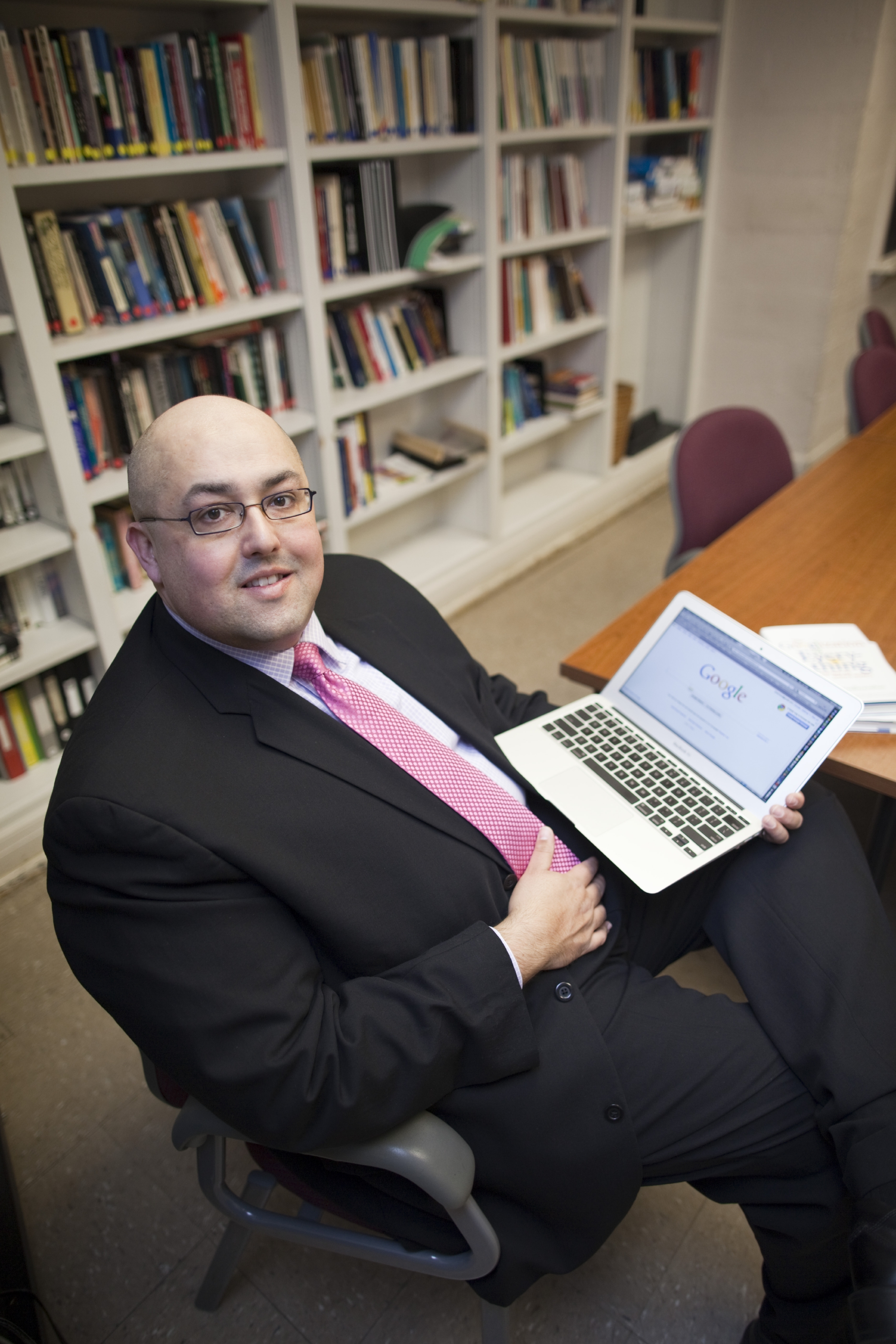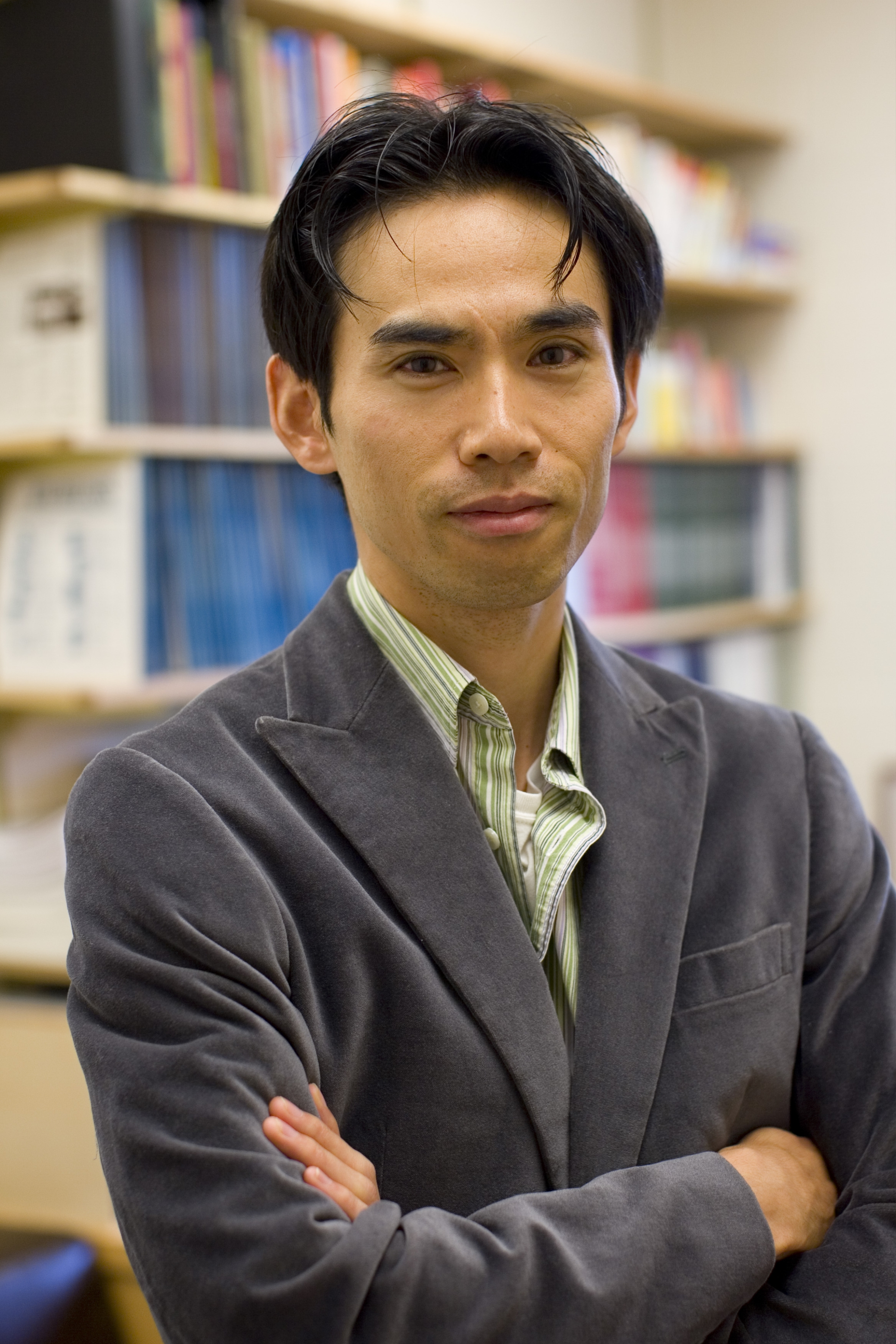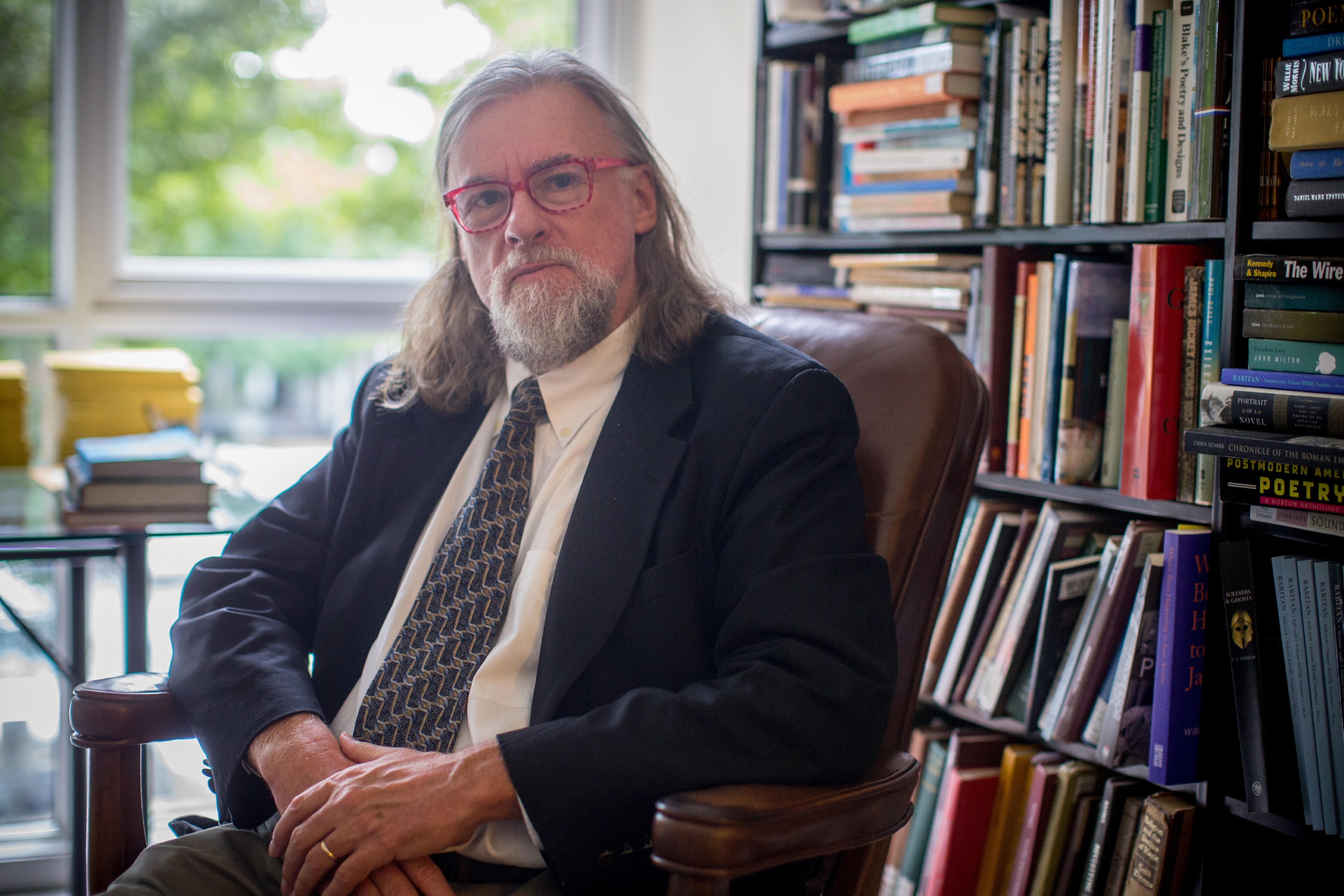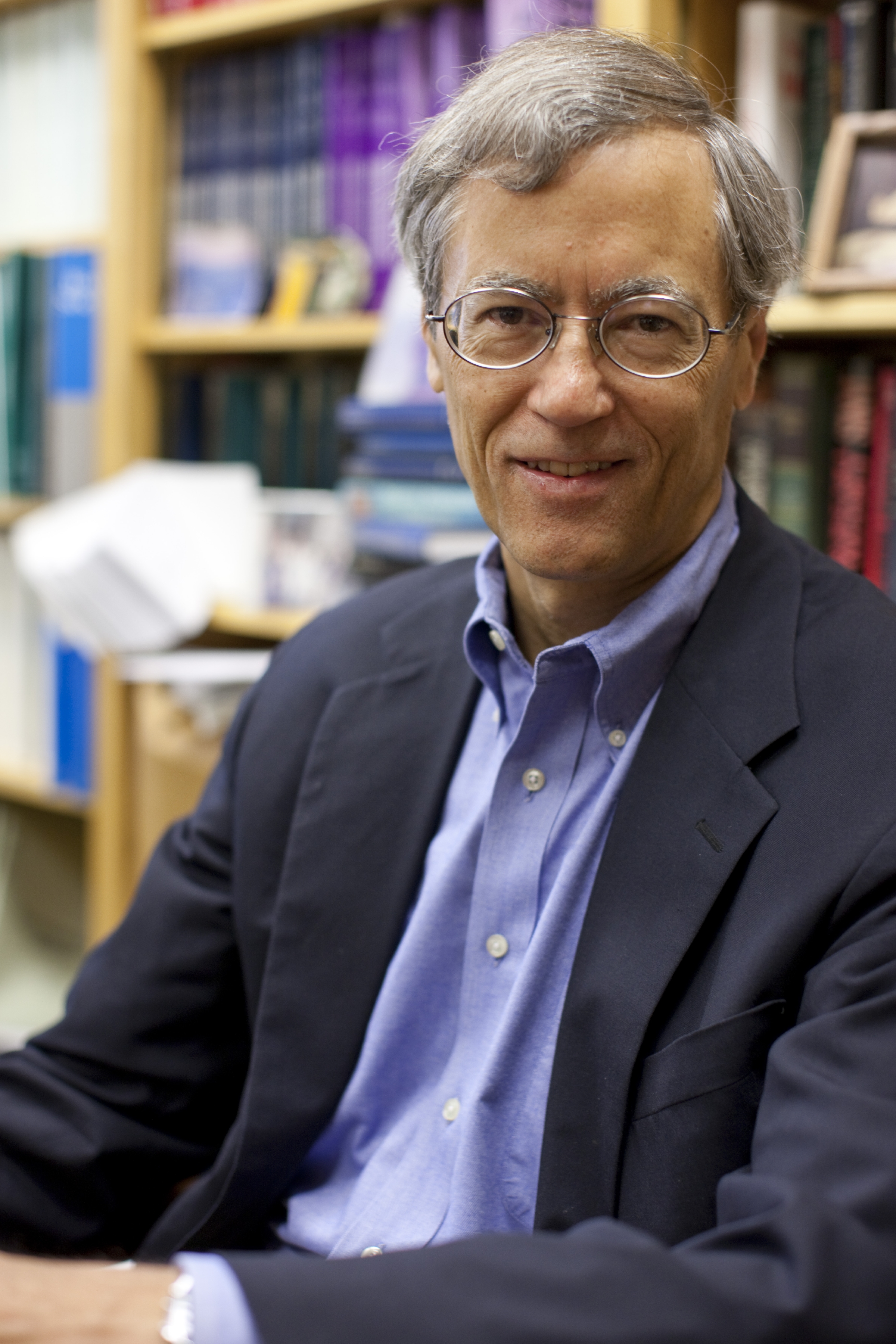Most people are familiar with Thomas Jefferson asserting “the pursuit of happiness” as one of the inalienable rights he listed in the Declaration of Independence. Complications of contemporary life, however, often seem to muddy this aspiration.
The essence of wisdom is discriminating the good pleasures from the bad, one University of Virginia professor points out. In recent articles, excerpted here, several UVA faculty members offer some timeless and some new perspectives on happiness and well-being.
Siva Vaidhyanathan, Robertson Professor of Media Studies
The University and the Pursuit of Happiness

Siva Vaidhyanathan: “Take the time to enjoy your days here. Jefferson placed his university in a bucolic spot, because he saw it as a garden.”
“But the good life is not so simple. Professors often devote their lives to getting young people to examine what might make their lives good. It turns out the trappings of achievement are not necessarily the best way. But a university offers other paths to a good life. Wisdom, camaraderie and pleasure are some of those paths.
“‘Take the time to enjoy your days here,’ I said to [one student]. ‘Every alumnus tells me how much he or she misses this place dearly. Treasure the moments and your good friends.’
“Universities are distinct from the rest of society by design. One should not enter a university for the chief purpose of getting minor-league experience in commerce, workflows, politics or all the stress that accompanies all of that. One should enter this phase of life expecting something different than the days before or the days after. That’s why it’s special. That’s why it’s both expensive and priceless.
“Jefferson placed his university in a bucolic spot, because he saw it as a garden.”
— Virginia Quarterly Review, Oct. 12, 2015
Shigehiro Oishi, Professor of Psychology
New Study Suggests Walkable Cities Don’t Make People Happier

Shigehiro Oishi: "If you can’t stop and smell the roses, you’re not going to have very high life satisfaction – no matter how much you’re walking."
Oishi, the lead author who researches happiness across cultures, says the findings likely reveal that the problems cities face might outweigh the benefits afforded by walking.
“New York City, San Francisco [and] Boston are all very walkable and healthy,” Oishi said in a recent interview. “But they are cities with quite a bit of inequality. Many people might compare themselves with a small number of super well-to-do in those cities, which might affect their life satisfaction negatively.”
Another explanation for the disconnect between walkability and happiness is that city life could simply be too busy. If you can’t stop and smell the roses, he says, you’re not going to have very high life satisfaction – no matter how much you’re walking.
One option is to make “walkability” more about leisure, not commuting. In places like Seattle and Boulder, Colorado, residents can walk, jog or bike free from the stress of traffic. Not only does getting into the trees make people de-stress, but park-goers are likely to bump into others – another connection psychologists say leads to healthy aging.
— Business Insider India, Oct. 27, 2015
Mark Edmundson, University Professor
If Everything Is So Amazing, Why’s Nobody Happy?

Mark Edmundson: "The best of all lives were based upon a quest, and an arduous quest at that."
“Well, let us ask an authority, maybe the ultimate philosophical authority on the subject of happiness. What would Plato say?
“I suspect Plato would say that it’s not so strange that everything is amazing and people don’t seem happy – certain people, Plato might add, in particular. Plato believed that the best of all lives were based upon a quest, and an arduous quest at that.
“Like the life of courage and the life of thought, the life of compassion seems to be receding in our culture. People don’t talk much about ideals any more. We don’t usually offer them as viable options to the young.
“But other people will find that no matter how amazing the technologies of pleasure and power may be, life still feels empty. These people will feel that life ought to be more than sleeping and eating and hoarding, getting and spending and having a good time. In our current culture, those people may feel confused. Where are they to go for an alternative?
“There is Plato behind them, but still out ahead of them; there is Homer; there are Jesus and Confucius and Lord Buddha. And perhaps they will turn to them and see a new world of possibility open up.”
— Virginia Quarterly Review, Oct. 5, 2015
Tim Wilson, Sherrell J. Aston Professor of Psychology
Improve Your Life with “Story Editing”

Tim Wilson: "The writing exercise encourages people to edit their personal stories in ways that lead to sustained changes in their behavior and well-being."
“Many of us have healthy, optimistic stories that serve us well. But sometimes, people develop pessimistic stories and get caught in self-defeating thinking cycles, whereby they assume the worst and, as a result, cope poorly.
“A variety of writing exercises have been developed that help people reinterpret troubling events from their past in ways that speed recovery from these events. I certainly don’t claim that story-editing techniques are the answer to all of society’s ills. These techniques have, however, been shown to lower the rate of teenage pregnancy, reduce teenage violence, lower the use of alcohol and drugs, improve relationships between members of different ethnic groups, and reduce the achievement gap.
“Another approach is to get people to change their behavior first. This ‘do good, be good’ approach was well-known to Aristotle, who said, ‘We become just by the practice of just actions, self-controlling by exercising self-control, and courageous by performing acts of courage.’
“One of the best ways of preventing teenage pregnancies, for example, is to get teens to do volunteer work in their communities. Doing so changes them from alienated kids who don’t care about the adult world to kids who feel like they have a stake in their communities.
“What all of these approaches have in common is that people are encouraged to edit their personal stories in ways that lead to sustained changes in their behavior and well-being.”
— Scientific American, Sept. 13, 2011
Media Contact
Article Information
October 30, 2015
/content/pursuing-happiness-uva-professors-offer-their-prescriptions

